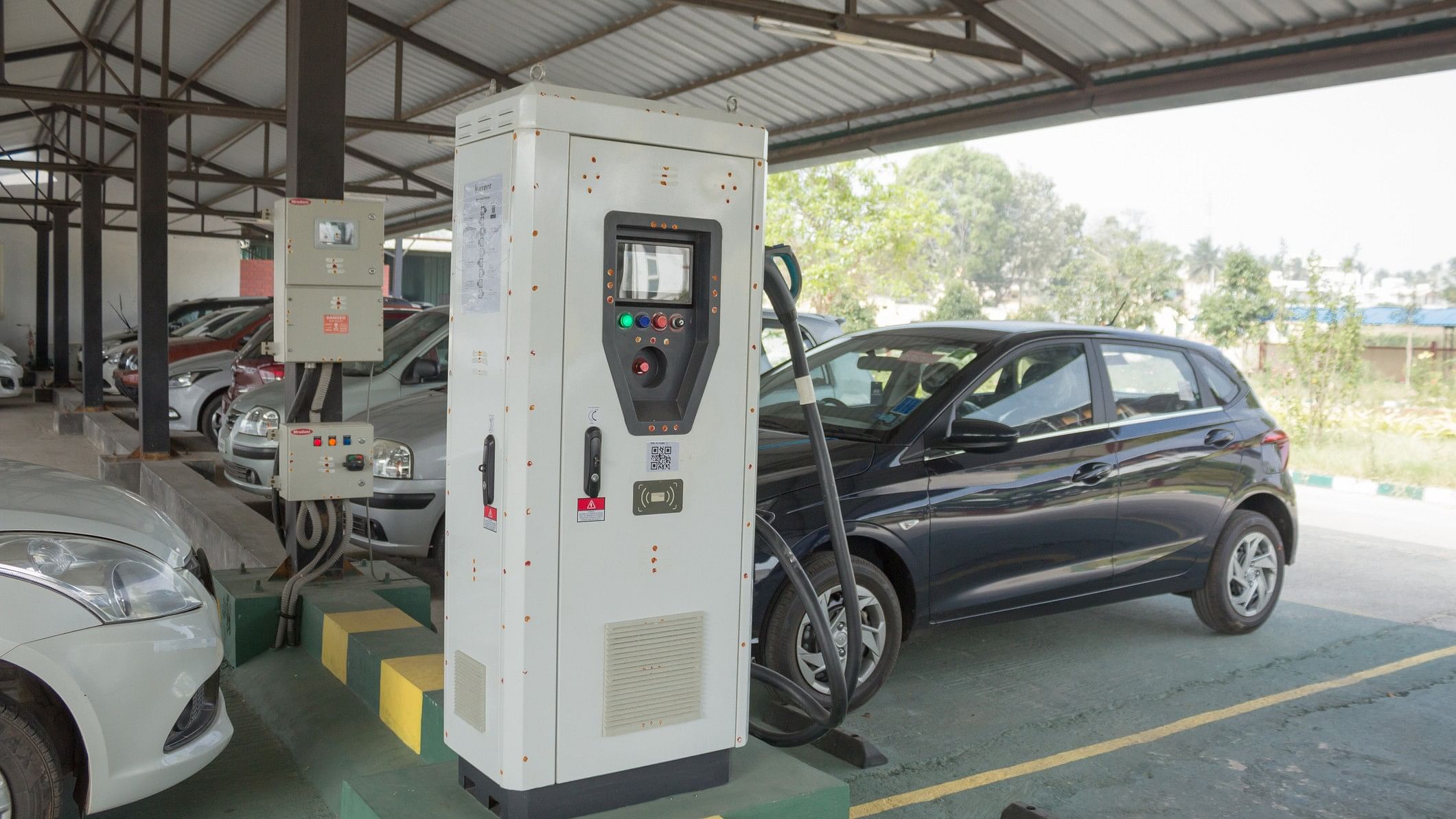
Since 2015, Indian EV startups have collectively secured a substantial investment of $2.6 billion, primarily led by original equipment manufacturers (OEMs).
Credit: iStock Photo
As the world grapples with Climate Change, and the need for sustainable transportation, India’s startup ecosystem is playing a pivotal role in shaping the future of mobility.
India's electric vehicle (EV) market has hit a turning point, with EVs accounting for approximately 5 per cent of total vehicle sales between October 2022 and September 2023. By 2030, EVs could constitute more than 40 per cent of India’s automotive market, generating over $100 billion in revenue. The surge in adoption is particularly pronounced in the two-wheeler and three-wheeler segments, where EVs have already captured 50+ per cent of new sales. Additionally, electric four-wheelers (E4Ws) are expected to comprise 30 per cent of all four-wheeler sales by 2030.
Governments are actively promoting the adoption of electric buses, with plans to deploy 10,000 electric buses within the next decade. Moreover, the logistics sector is beginning to explore the potential of EVs, further fuelling industry growth. This transition reflects a broader movement towards sustainable transportation solutions, marking a pivotal moment in India's journey towards a greener, cleaner future.
Driving the revolution
Startups are crucial catalysts for progress and prosperity in the rapidly growing EV sector. India's EV startup ecosystem is not only disrupting the industry, but also setting a global benchmark for sustainable mobility. These homegrown companies are innovating across every aspect of the EV lifecycle, from sustainable mobility to energy infrastructure, commercial mobility, battery management systems, and analytics. Their comprehensive approach benefits both the public and enterprises, providing a significant boost to the sector.
Funding follows innovation and growth
Since 2015, Indian EV startups have collectively secured a substantial investment of $2.6 billion, primarily led by original equipment manufacturers (OEMs). Initially, significant funding flowed into OEMs, but in recent years, investor attention has diversified across industry sub-segments such as EV financing, charging infrastructure, and battery technology. This shift reflects the growing momentum in EV adoption, prompting founders to focus on making charging more accessible, innovating components, and data management for lifecycle optimisation.
Looking ahead, investments in electric mobility are expected to intensify, particularly in emerging technologies aimed at improving range, reducing costs, and enhancing overall user experience. This reflects a fundamental belief in the burgeoning potential of the EV market and underscores the opportunities for innovation and growth within the sector.
Innovative transforming sector
India's startup landscape is abuzz with initiatives that are reshaping the EV industry. The innovative areas they actively contribute to the industry's transformation:
● Subscription-based models such as eMaaS offer flexible access that aligns with changing consumer preferences for sustainability and convenience.
● EV-focused ride-sharing and rental platforms optimise vehicle utilisation and provide a taste of EV experience without ownership commitments.
● Innovative charging solutions, including fast-charging stations, peer-to-peer charging networks, and battery-swapping services that enhance accessibility.
● Industry 4.0/Digital Twins for faster and sustainable EV development, creating virtual replicas that revolutionise automaker operations.
● Tailored EV designs for urban landscapes that address unique challenges such as charging infrastructure and traffic congestion.
● Leveraging AI, data analytics, and IoT to optimise battery performance, predictive maintenance, and user experiences, reducing the total cost of ownership (TCO).
● Advancements in battery management systems, solid-state batteries, and battery waste management contribute to higher energy density and localised manufacturing.
Commitment towards sustainability
Corporate India is engaging startups as part of its commitment to sustainability and is driving EV adoption in multiple ways:
● Leadership Commitment: Corporations are aligning business strategies with environmental goals, committing to transition to green mobility.
● E-commerce Giants: Companies such as Flipkart and Amazon are not only recognising the economic benefits of electric fleets, but also actively reducing their carbon footprint.
● Fleet Electrification: Corporates are integrating EVs into their fleets, demonstrating the feasibility and benefits of EV adoption.
● Employee Engagement Programmes: Initiatives promoting green mobility among employees contribute to EV growth and position companies as responsible employers.
India’s global dominance
Unlike some countries that focus solely on passenger cars, India’s startups cover the entire spectrum — OEMs, charging infrastructure, rentals, swapping, financing, and AI-driven solutions. India’s EV startup ecosystem is writing a compelling narrative — one that combines innovation, sustainability, and economic growth. India’s prowess lies in its comprehensive approach and is poised to assert dominance in the global EV space. Buckle up; the ride has just begun!
(This is the first in a two-part series looking into the current state and challenges before India’s EV sector).
(Mohanakrishnan P is Chief Growth Officer, and Balram Nair is COO, 82Volt Technologies.)
Disclaimer: The views expressed above are the author's own. They do not necessarily reflect the views of DH.